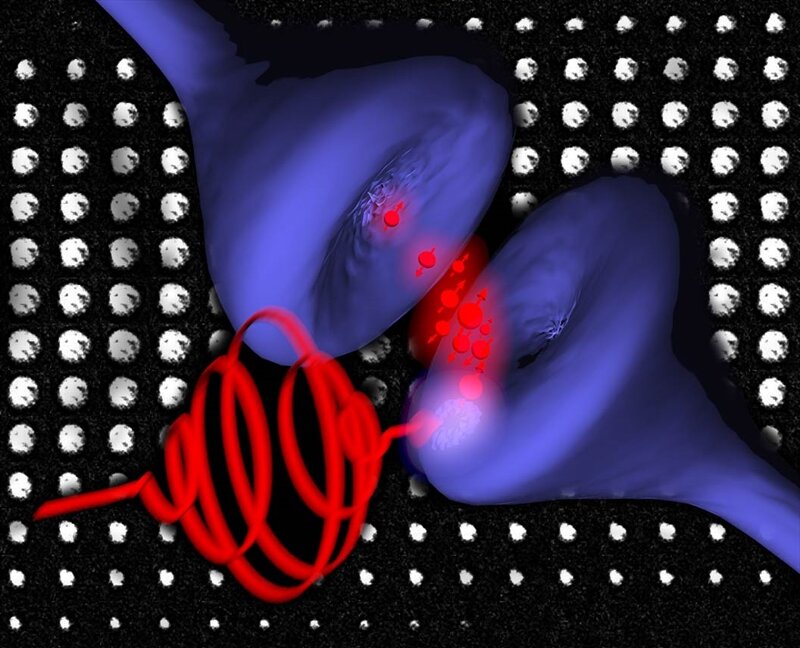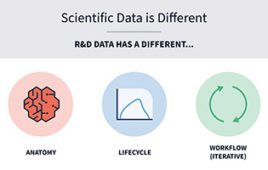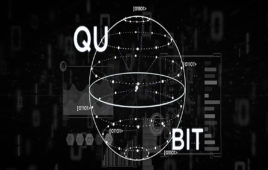
Using magnetism and light, the researchers managed to create synapses that are able to learn by a gradual change of the magnetization. (Credit: Ashim Chakravarty)
The power consumption of data centers around the world is increasing. This creates a high demand for new technologies that could lead to energy-efficient computers. In a new study, physicists at Radboud University have demonstrated that this could also be achieved by using chips whose operation is inspired by that of the human brain. The study was published in the scientific journal Applied Physics Letters on May 16.
Compared to our current computers, the human brain uses a fraction of the energy to process the same amount of data. This is possible due to the fact that our brains can process data in parallel and store it as well by making connections stronger or weaker.
“We wanted to see if we could implement this property of plasticity in an artificial system and combine it with the rapid and energy-efficient technique to control magnetism using light, which has been applied for some time already,” say Johan Mentink and Theo Rasing, both physicists at Radboud University. “This should eventually lead to energy-efficient and smart computers.”
Analog instead of digital
The possibility of fast and energy-efficient data storage using magnetism has been known for some time. By firing short light pulses at magnetic material, the magnetic spins in the material are flipped, which changes a 0 into a 1, and vice-versa. “But to get these magnets to behave like synapses in the brain, which would allow to not only store data but also to process it, the magnets should be allowed to change continuously,” Mentink explains.
“We were able to give magnets this property by ensuring that the magnetic state of the material changes gradually under the influence of light, instead of doing a full flip at once. This could be compared to an analogue timepiece that moves gradually, in contrast to a digital clock.”
Learning behavior of magnets
This new plastic property paved the way for researchers to build a small artificial neural network, in which two separate areas of the magnet—two artificial synapses—were linked. Rasing said: “We have demonstrated that it is possible to build an artificial neural network using magnets, which not only stores data but is also truly able to classify patterns and show learning behavior.”
The researchers now want to investigate whether they can build larger neural networks following this approach. “Right now, the neural network is learning from feedback which it receives from an external computer. In the longer term, we hope to find a physical principle to implement the feedback into the material itself. This would have a significant impact on the way in which artificial neural networks could be applied in our society,” Mentink says.




